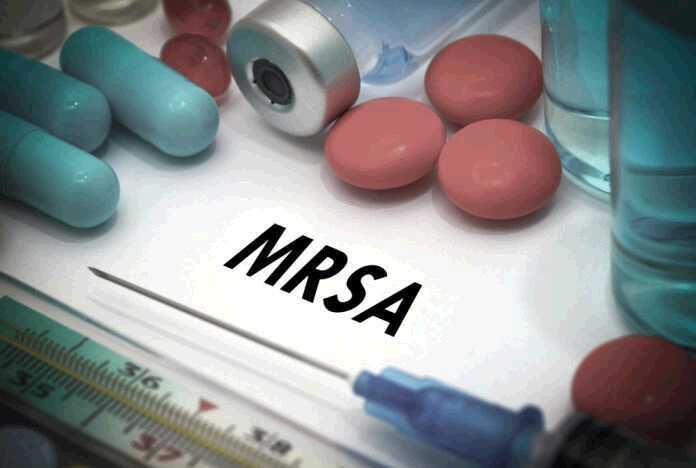
Methicillin-resistant Staphylococcus aureus (MRSA) is a multi-drug resistant type of staph bacteria. It is one of the most common healthcare-acquired bacteria often spread in hospitals, nursing homes, residential centers, and dialysis centers. It can also be contracted in child care facilities, gyms, and other places with a lot of public traffic. MRSA is dangerous because it is resistant to many antibiotics used to treat ordinary staph infections.
Many healthy people carry Staphylococcus aureus on their skin or noses without showing any symptoms. When this bacteria enters the body through cuts, wounds, or during medical procedures, the infection becomes a health issue and potentially life-threatening.
Symptoms of MRSA
Initial symptoms of an MRSA infection may appear as a red bump, pimple, or boil. Sometimes it could be mistaken as a spider or bug bite. The infected area is often painful, swollen, or warm to the touch. Pus may also drain from the area. Though MRSA skin infections are generally mild, there is potential for the bacteria to spread to other areas of the body causing organ damage and even death. MRSA infections can spread to your heart, lungs, bones, and joints.
It is best to seek medical attention when the above symptoms are accompanied by chills, fever, rash, or a severe headache.
Treating MRSA
Doctors use more advanced oral and topical antibiotics like trimethoprim and sulfamethoxazole to treat the infection. Family members of the infected person may also be asked to use an ointment like Bactroban to reduce the amount of MRSA on their skin.
Preventing MRSA
In hospitals, special procedures are often put in place to prevent the spread of MRSA including isolation and personal protective equipment.
The Mayo Clinic suggests these ways to prevent spreading MRSA in home and community settings:
- Wash hands. Washing hands thoroughly is the best defense against spreading germs. If clean water and soap are not available, consider carrying a small bottle of hand sanitizer.
- Keep wounds covered. Cuts and abrasions need to be covered with sterile, dry bandages until they heal.
- Don’t share personal items. MRSA spreads on contaminated objects like towels, sheets, and clothing.
- Sanitize linens. Wash contaminated towels and linens with the hottest water setting using bleach if possible. Dry the items in a hot dryer.
MRSA is a bacterial infection potentially leading to serious health problems. Taking small steps to protect yourself will help stop the spread of this superbug.






























